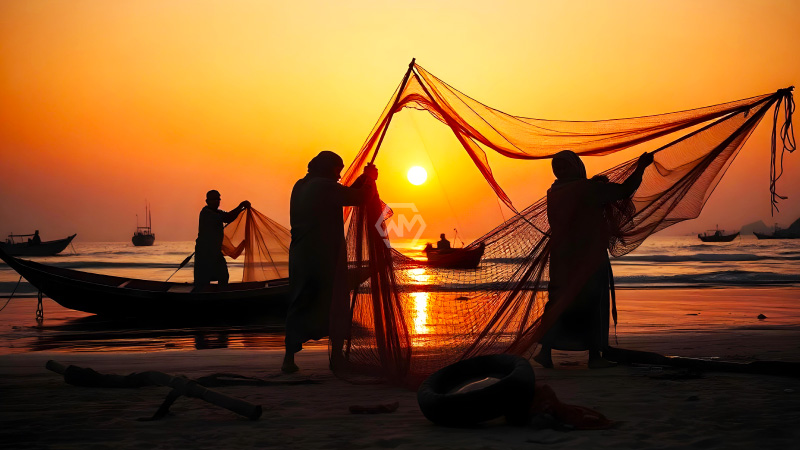- The sector generated MAD 8.46 billion ($820.6 million) in the first nine months of 2024.
- Cephalopod catches increased by 13%, while shellfish saw a drastic 89% decline.
- Mediterranean ports reported a 13% drop in volume but a 9% increase in value.
Morocco‘s coastal and artisanal fishing sector has shown resilience in 2024, with revenues reaching MAD 8.46 billion, reflecting an 8% increase compared to the previous year.
Despite the overall growth, some categories faced considerable declines, particularly shellfish and algae, which saw drops of 89% and 50%, respectively.
Challenges and Opportunities in Morocco’s Fishing Industry
The coastal and artisanal fishing industry in Morocco remains an economic cornerstone, providing employment and contributing significantly to national income. The sector’s growth is primarily fueled by increases in cephalopod and pelagic fish catches, which underscore the importance of sustainable practices and resource management to maintain this upward trend. The industry not only supports local communities but also plays a crucial role in Morocco’s trade dynamics.
However, the stark decline in shellfish and algae catches presents a pressing concern that may impact long-term sustainability. With shellfish catches plummeting to just 45 tons, the industry must evaluate environmental factors and fishing practices that contribute to such significant losses. This situation calls for strategic interventions, including research into the causes of decline and potential restoration efforts.
The performance of Mediterranean ports, which reported a decrease in catch volume but an increase in value, suggests that while fewer fish are being caught, the remaining fish may be of higher value. This trend indicates a potential shift in market demand and highlights the need for adaptability among fishers to capture higher-value species. Understanding market dynamics can help the sector adjust to changing consumer preferences while fostering sustainable practices.
As Morocco’s fishing industry navigates these challenges and opportunities, the emphasis on sustainable practices will be essential. By balancing economic goals with environmental stewardship, the sector can ensure its long-term viability and continued contribution to the nation’s economy.
In summary, Morocco’s coastal and artisanal fishing sector is at a pivotal moment, marked by both growth and challenges. Strategic interventions and sustainable practices will be crucial for addressing declines in specific categories while maximizing the sector’s economic potential.
“The ocean is a big part of our identity and our culture; it feeds us, it’s our history, and it’s our future.” – Unknown



